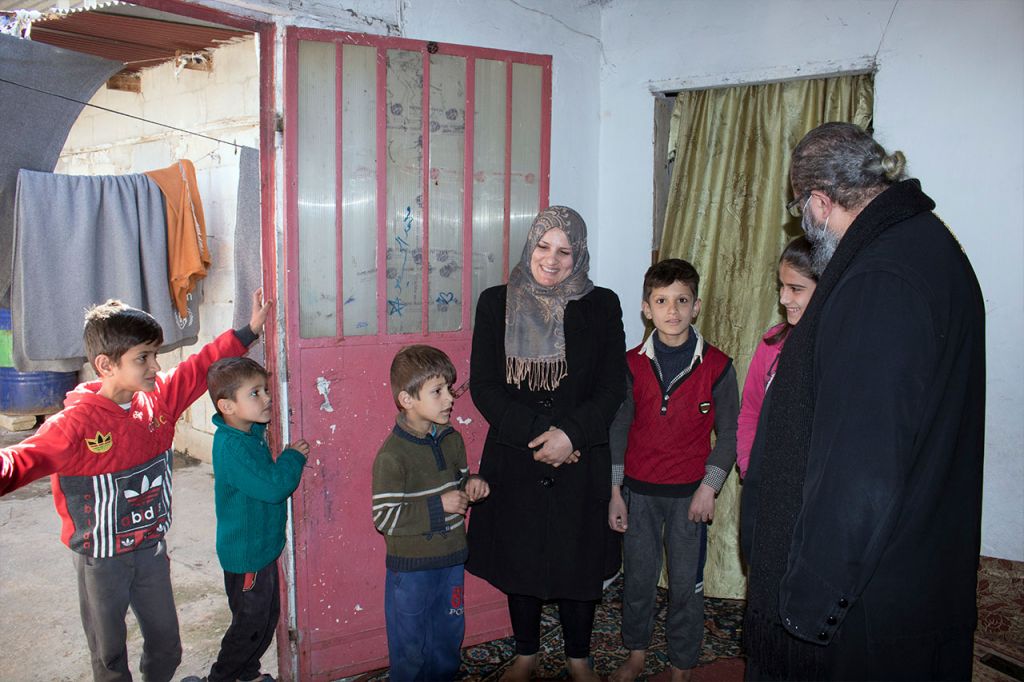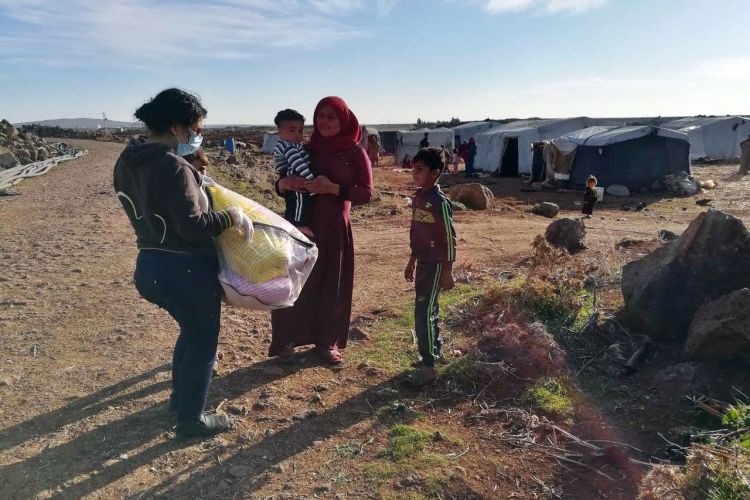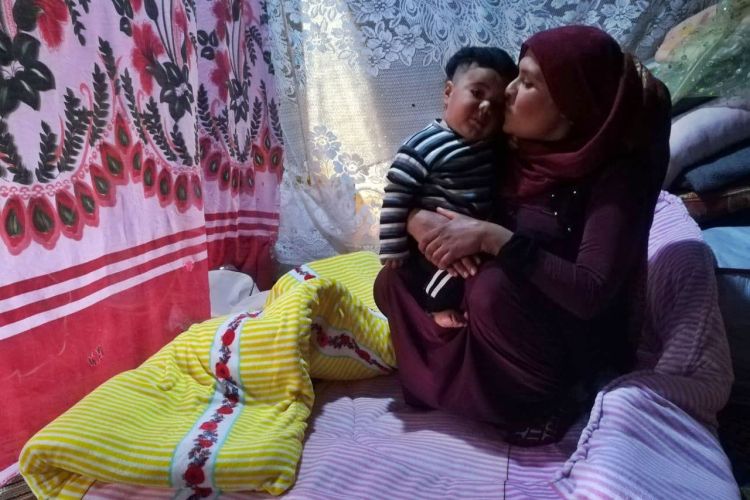Banner photo: Syrian children use electric heaters to keep warm.
The ten-year war in Syria has caused nearly 500,000 deaths so far. Over the past ten years, more than half of the country’s population have fled their homes. There are also more than 6 million internal-displaced people who are unable to leave and have to live in refugee camps. Many of them live in crude makeshift tents, and when winter comes, they have to endure the harsh wind every night under such poor condition.
Seriously damaged by the war, no one can foresee when peace will emerge in this ancient civilised country, since the war has already caused 80% of the population across the country into poverty. In order to support the displaced people to withstand the winter, CEDAR has supported the Fellowship of the Middle East Evangelical Churches through our partner Middle East Revive and Thrive (MERATH) for three consecutive years, in distributing warm items to displaced people in Syria. This year, 353 families (1,694 people) have benefited from the relief ministry funded by CEDAR.
Project Details
Project goal: to reduce the vulnerability of the poor in the crises by distributing warm clothing and other items.
Project locations: 10 governorates in Syria: Aleppo, Tartous, Lattakia, Homs, Damascus (municipality), Damascus Suburban , As-Suwayda, Daraa, Al Hasakah, Hama.
Project content: to purchase and distribute relief supplies, including electric heaters, stoves, warm blankets, and coats.
Project period: December 2020 to March 2021
Beneficiaries: 353 families (female-led families, with members of disabilities or chronical patients), 1,694 people in total.
Background of the Project
The harsh winter in Syria is unbearable, and the temperature is often below zero degrees Celsius with snow. In mid-February this year, 6-inches of snow was recorded in the As-Suwayda Mountains. The heavy snow has blocked roads in some governorates. In addition, due to the long-term fuel shortages, electricity supplies have been blocked, and some areas have got only 4 hours of electricity a day. Under the cold winter, residents’ demand for fuel has increased rapidly, but the fuel rationing from the government to the regions has continued to decline, resulting in an inflation in informal average price of heat-generating fuel. From February to March this year, it has been rising by 30%. Poor families who cannot afford expensive fuel have to rely on a small amount of government fuel rations and endure the freezing winter.
Project Achievements
In selecting recipients, CEDAR’s partner specifically targeted at poor households who live in remote rural areas and are yet to be contacted by other humanitarian aid organisations.
In the interviews, all the recipients have mentioned that our assistance has helped them to endure the winter and prevent them from catching a cold or other respiratory tract infection disease. Most of the beneficiaries said that the cold prevention materials they received were in good quality.
Most of the recipients in the interviews said that although they still have to borrow money for their living, the cold prevention materials we distributed have helped them save the money and cope with other living expenses (including medical expenses, rent and children’s education expenses).
The recipients of the project included internally displaced Syrian refugees and non-refugees, which helps to ease the conflict and tension between the two sides.
CEDAR’s partner carried out relief work through the local churches. Through front-line contacts and visits, the ability of the churches to serve in the community has been strengthened.
Stories of the Beneficiaries
“In this difficult time, the visits of the church give me strength, joy and hope. They treat us like family. They treat people sincerely, listen tenderly, and are willing to help and give,” said the recipient Fatima (pseudonym).

Fatima and her family lived in a decent house before the war. When the war broke out ten years ago, her family of seven had to flee from the fiercely bombing in her hometown. After several relocations, they finally found a simple hut in Homs and settled down. Although the hut was not as good as expected, she could not help since she could not afford her family to live in a better house.
On rainy days, water seeps through into the house along the roof made of metal plates. When there is wind, the cold wind blows into the house and it makes everyone inside tremble. Fatima’s biggest concern is the health of the children, as her husband’s meager income cannot even afford the heating fuel.
Fatima learned from friends that there are churches serving the poor. She contacted the church, and after listening carefully to her difficulties, the church responded immediately. In the past year, the church gave food to her family. This winter, the church cooperated with CEDAR’s partner, and enabled the recipients to receive assistance such as electric heaters to withstand the winter.
Apart from receiving material assistance, Fatima is most touched by the care and love of the church. “For the first time, we felt that some people (the church) really care about us and offer us a helping hand… The children like church members to visit and wait for them eagerly. This is because there are not many people will express and show sincere care to us.” Fatima said that every time the church visits, children like to be asked about their school life and their life in the leisure time etc. The church is always so eager to share snacks and stationery with the children, which makes the children extremely happy.
The front-line work of CEDAR’s partner and the church has benefited many poor households like Fatima’s family. As Fatima said, what “the benefit” is not only in material, but in fellowship and comfort, which help them regain their dignity and identity as human beings.
Fatima said happily that the church’s care has a positive impact on children, in which they are trying to help friends in need in the community and school!



